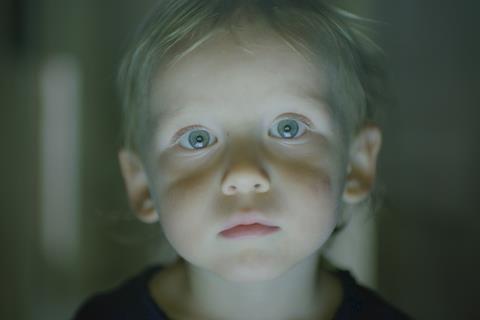An anxious investigation into how technological advancement may affect our children

Dir: Natalia Almada. USA/Mexico. 2021. 81 mins.
Users imagines what the present day might look like from the near future, taking as a jumping-off point a mother’s anxiety about the ”perfection” of technology versus her own flawed and human parenting, as well as her mounting concern about the world in which her children will grow up. Might the world they inhabit be so different that they have a closer relationship to technology than they do to the generation that came before? Lyrically meandering in approach, this is a far-reaching interrogation of the future — to the point of feeling a little overstretched and unfocused at times. But then the impact of technological advances on the shape of the world is boundless — so boundless that it is hard to conceive, let alone succinctly summarise. And while its ideas might fail to fully coalesce, the film is unnervingly beautiful; an immersive and mesmeric aural and visual experience.
Almada has an eye for a striking image
Director Natalia Almada (the recipient of a MacArthur Genius Grant in 2012) won a directing prize at Sundance for the second time with this film. (The first was for El General in 2009.) The film’s arresting widescreen photography and sense of foreboding shackled to progress evokes pictures like Nikolaus Geyrhalter’s Our Daily Bread or Zhao Liang’s Behemoth. But unlike both of these near-wordless accounts of agriculture and industry, Users employs a sparse narration to guide the viewer through a stream of loosely linked images, a device which is not wholly successful. Further festival interest seems likely after the Visions du Reel international premiere, and the film could find a home with a documentary-specialist distributor.
Almada has an eye for a striking image. The face of a toddler, impassive and barely blinking, lit by the glow of a screen, is a recurring visual; fat baby fingers are unexpectedly dextrous when they make contact with a touch screen. Elsewhere, the camera gazes upwards into the scorched sky above a forest fire; an elderly Texas oil man talks of losing his place in the world; seedlings germinate in a sterile environment, unsullied by earth or rain; at a recycling plant, yesterday’s tech is dismantled — a confetti of circuit board fragments is hypnotically endless.
There’s a distracted quality to the film’s structure, a kind of glitching, channel-skipping restlessness which sees us jumping from the oil industry to organ transplants to data-storage technology. Perhaps it’s a deliberate echo of the way we surf and process information, an approach which encourages us to form our own neural connections and logical leaps. But certainly it might have meshed more successfully if the narration had been less nebulous.
There are, however, moments of extraordinary power, many of which are tied to the film’s sound design. There’s a synergy between the rhythms of the world around and the score (performed by the Kronos Quartet) which creates complicated and disorientating aural mazes. And Almada taps into something genuinely chilling when she takes an element as profound as the mother-child connection and then disrupts it. A toddler is played a computer-simulated recreation of his mother’s voice and reacts to it with a start; meanwhile his face is mapped and reduced to a series of information points. We’re all just data, after all.
Production company: Department of Motion Pictures, Altamura
International sales: Film Constellation, sales@filmconstellation.com
Producers: Josh Penn, Elizabeth Lodge Stepp, Natalia Almada
Cinematography: Bennett Cerf
Editing: Natalia Almada
Music: Dave Cerf, the Kronos Quartet
























